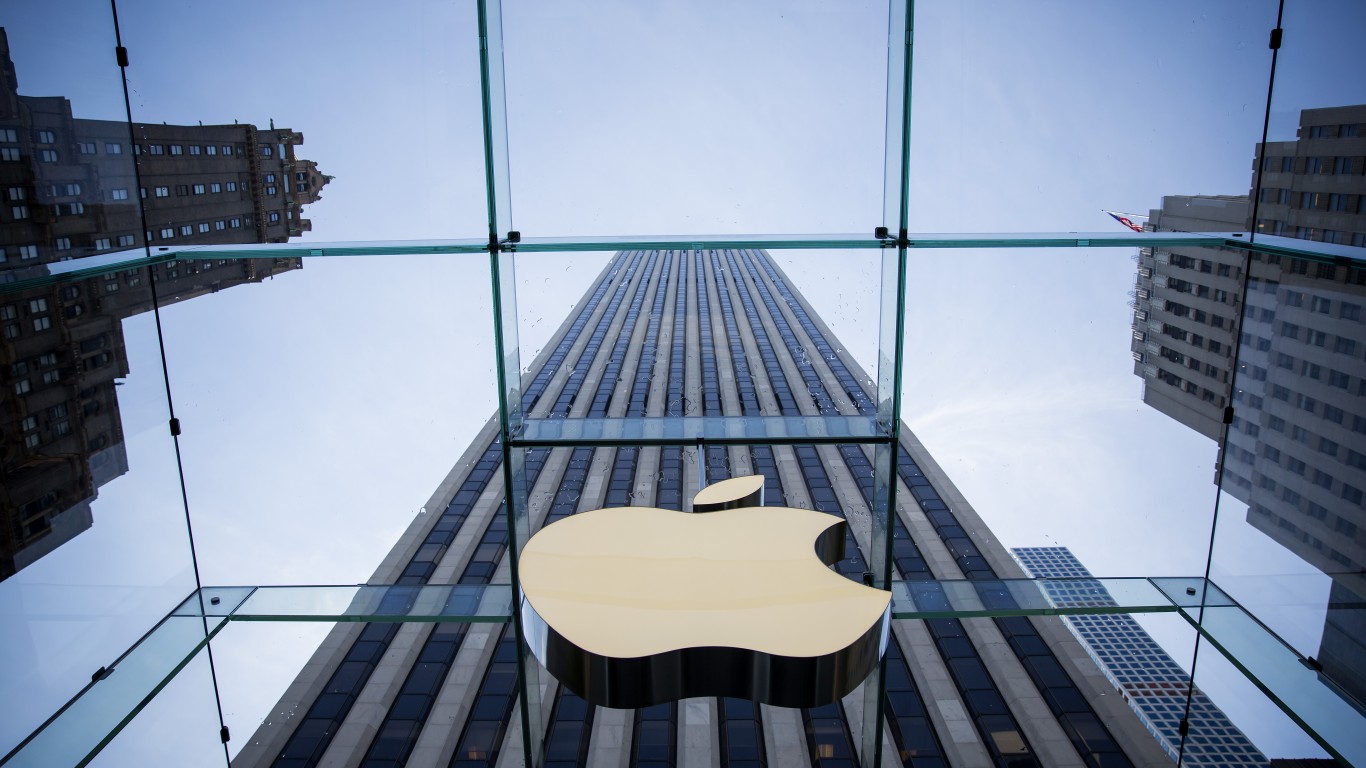Technology
What's Up With Apple: Apple Card Not Sexist, Butterfly Keyboard in Court, and More

Published:

A couple of high-profile accusations in late 2019 of gender-based bias against Apple Inc.’s (NASDAQ: AAPL) Apple Card were found not to be true. Apple co-founder Steve Wozniak and Basecamp designer David Heinemeier Hansson had both charged that their female partners were given lower credit limits on the Goldman Sachs-issued Apple Cards.
An investigation by the New York State’s Department of Financial Services “did not find evidence of unlawful intentional discrimination against women or members of other protected classes” and determined that Goldman Sachs “did not consider prohibited characteristics of applicants and would not produce disparate impacts.” Still, according to the report, after reviewing both sets of credit files, Goldman Sachs “raised the credit limits of both women to match the credit limits of their respective spouses within days after their complaints surfaced.”
The Federal District Court for Northern California has granted class-action status to a lawsuit against Apple claiming that the company knew its infamous butterfly keyboards were defective even while Apple was selling the laptops that used the keyboards. The decision was handed down earlier this month but only unsealed late last week, according to The Verge.
The butterfly design was introduced on MacBook laptops in 2015 and used on MacBook Pro models between 2016 and 2019 and on MacBook Air models in 2018 and 2019. According to the lawsuit, “Within a short time after the release of the butterfly keyboard, Apple noticed that customers were returning the butterfly-equipped MacBook at a higher rate than predecessor products.”
Each of the 11 plaintiffs in the case bought a new MacBook with the butterfly keyboard “that failed in some capacity” and all said “that had they known of the butterfly keyboard defect, they would not have bought these computers or would have bought them only at a much lower price.”
At a business update presentation on Tuesday, Intel said it is planning to invest $20 billion in two new chipmaking factories to be built in Arizona. CEO Pat Gelsinger said that the company would “pursue opportunities with Apple.” Late last year Apple announced that it would design its own CPUs based on Arm’s architecture, and abandon the Intel-based designs Apple has been using for 15 years.
According to a report in AppleInsider, one of the new Intel factories would be a contract foundry (called a fab) that could produce Arm-based designs along with Intel’s own x86 designs. Apple’s primary silicon provider is Taiwan Semiconductor, which is also building a new fab in Arizona.
Finally, Apple has raised the ire of Andy Yen, founder of ProtonMail and ProtonVPN. The two services are designed to provide secure and private communications that can “overcome internet blocks.” Such products are typically not welcomed by repressive governments, such as Myanmar’s. In a blog post Tuesday, Yen said that the United Nations had recommended that people use ProtonMail or Signal to report evidence of crimes against humanity in Myanmar and elsewhere.
Apple, however, has blocked updates to ProtonVPN from appearing in the App Store, citing the app’s description of how it could be used: “Whether it is challenging governments, educating the public, or training journalists, we have a long history of helping bring online freedom to more people around the world.”
Apple’s reviewer suggested, “To resolve this issue, please ensure the app is not presented in such a way that it encourages users to bypass geo-restrictions or content limitations.” Yen called Apple’s action “hypocritical”:
Apple has no problem challenging governments when it is in its own financial self-interest (e.g., avoiding EU taxes or evading antitrust charges). However, when Proton does it for human rights reasons, it’s suddenly against Apple’s policies.
Actions have consequences, and Apple’s actions are actively hampering the defense of human rights in Myanmar at a time when hundreds of people are dying.
Thank you for reading! Have some feedback for us?
Contact the 24/7 Wall St. editorial team.